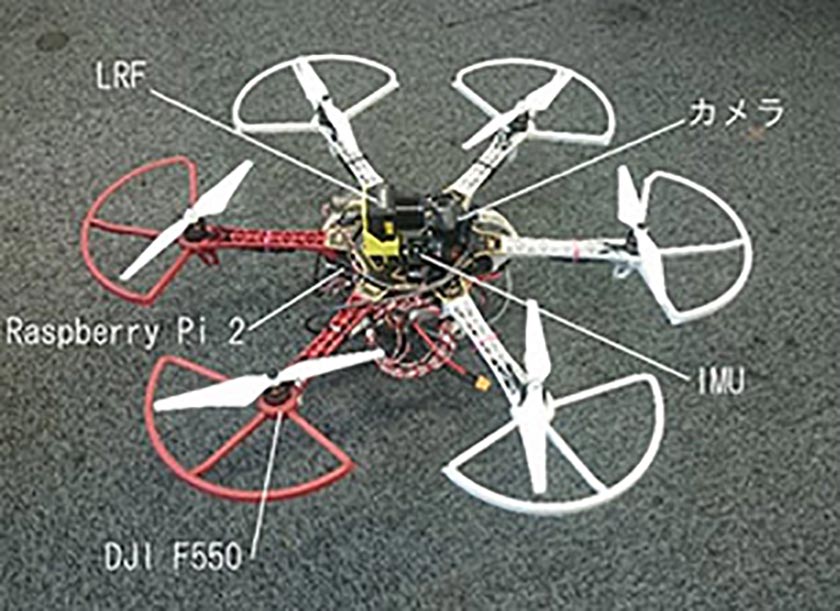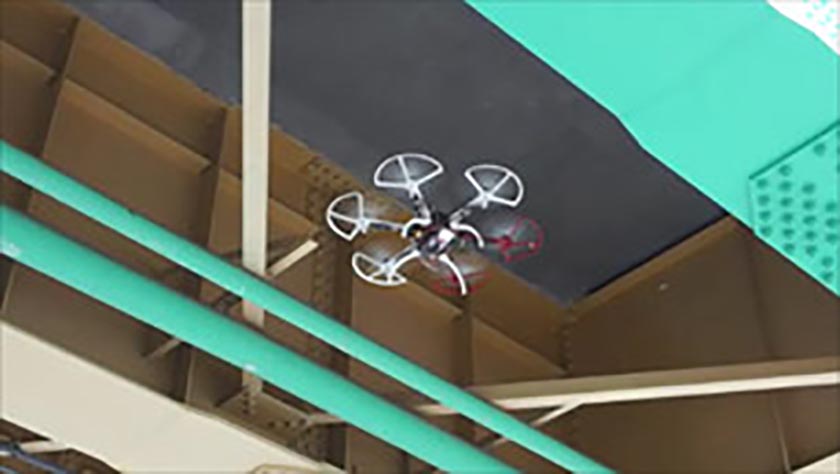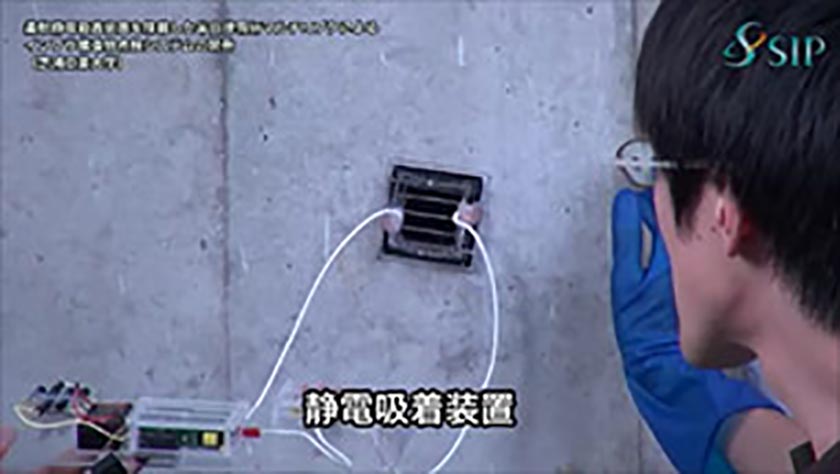Electrical Engineering
About Electrical Engineering
Studies in a wide spectrum of fields related to electrical technology, with energy and controls as the core subjects, are conducted. Research fields are divided into the electricity and energy, systems controls and robotics, and electrical materials and devices clusters, corresponding to industries that are becoming more advanced and high tech.
Research Domain
Electric vehicles, energy conversion, affective engineering, clean energy, transportation safety, visual information processing, energy conservation, lighting design, solar cells, low power consumption technologies, electric power supplies, power electronics, mechatronics, robots, monitoring, linear motors, micro and nano-machining, embedded systemsResearch
Multi-Copter Robot for infrastructure inspection
HASEGAWA Tadahiro
We develop the semi-auto multi-copter for infrastructure inspection, which is supported by Council for Science, Technology and Innovation (CSTI), Cross-ministerial Strategic Innovation Promotion Program (SIP), (Funding agency : JST). There are other research groups that carried out experiments using a multi-copter with camera for building inspection for years. It is hard to inspect infrastructure as the multi-copter did not stay at a fix position, which leads to distortion of images or videos taken by multi-copter. On the contrary, our semi-auto multi-copter can be control manually and autonomously equips with novel flexible electrostatic absorption devices. With flexible electrostatic absorption devices attached to this semi-auto multi-copter, proposed algorithm would be the best for close-range inspection using multi-copter as it ensure a fix position during infrastructure inspection thus improve close-range inspection results.



Laboratories
Objectives in Education and Research
The vision of the Department of Electrical Engineering is to nurture individuals with the following skills:
- Knowledge of multiculturalism and a broad historical perspective of social development in which to empower individuals with diverse perspectives.
- Able to comprehend and relate to the code of ethics provided to assist engineers to perform under a standard of professional behavior, to adhere to a clearly defined engineering ethical duty. Also, able to make a value judgment based on ethical perspectives in the course of practical implementation.
- Fully exploit mathematics, natural sciences, and information sourcing skills as a language/tool for problem solving.
- Applying ones abilities to find solutions to social needs by adopting electrical engineering and other related engineering technologies.
- To understand social needs and be able to define technological issues using ones own initiatives, and by applying expertise knowledge to design, analyze, manufacture, evaluate, and solve problems.
- Requisite communication skills for a global society.
- A persistent dedication to learn and independently address the important issues and thereby strengthen ones inquisitive nature.
- To clearly identify problems with given restrictions, draft potential plans and progress the work as planned, and also maintain a portfolio or findings or results.
- Recognizing ones own responsibility within a team, to mutually understand and advance work efficiently. Self-awareness and self-recognition on reflection.